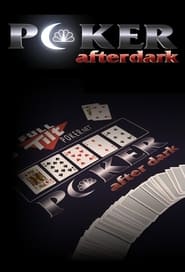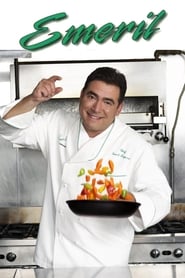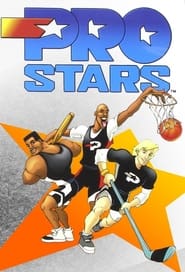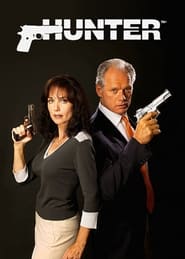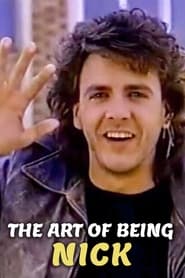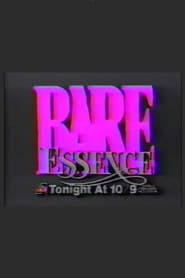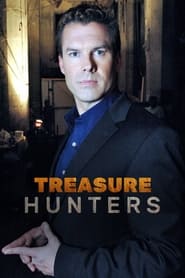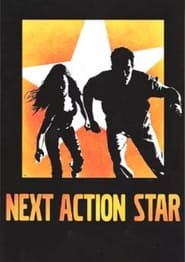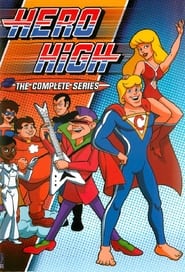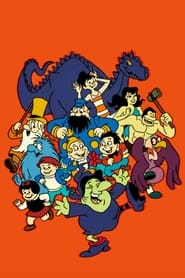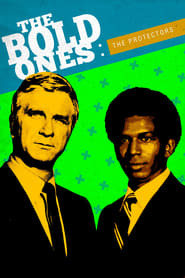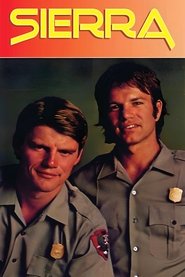Nbc TV Series - Page 65
-
Poker After Dark
2007
Poker After Dark
2007
Poker After Dark is an hour-long poker television program on NBC. The show made its debut on January 1, 2007, and was cancelled on September 23, 2011 following the "Black Friday" criminal case, which involved major sponsor Full Tilt Poker as one of the defendants. For its first two seasons, both of which originally aired in 2007, the show was presented by Shana Hiatt. The host for season 3 was Marianela Pereyra, and Leeann Tweeden took over starting with season 4. All seasons have contained voice-over commentary by Oliver "Ali" Nejad. The program returned to American television over the NBC Sports Network on March 5, 2012 with previously aired repeats, with unaired episodes from season 7 airing for the first time beginning June 4, 2012. NBCSN schedules the show on weeknights at midnight, although the start time varies due to overruns by sporting events. -
Emeril
2001
Emeril
2001
Emeril is a short-lived American sitcom that aired on NBC in 2001. The series stars chef Emeril Lagasse playing himself as the star of a TV cooking show. -
ProStars
1991
star 4.8ProStars is a Saturday morning cartoon show produced by DiC that aired on NBC from September 14 to December 7, 1991. -
Yo Teach...!
2009
star 10Judd Apatow launched a fake sitcom on NBC.com this week to help promote his upcoming film “Funny People.” High school is tough enough without the added distractions of drug abuse, teen pregnancy and anorexia. Fortunately for the colorful underachievers at Jackson High, theres a teacher whos got their back: Mr. Bradford (Mark Taylor Jackson), the wise-cracking mentor of Yo Teach...! Each week, Mr. Bradford tosses his lesson plan to the wind and tackles a new moral dilemma while keeping one step ahead of Principal Andrews and the politically correct PTA. -
Hunter
2003
star 10Attempted revival of the popular 1984 NBC police drama of the same name. The series was cancelled after the pilot and three one-hour episodes were broadcast. -
Hizzonner
1979
star 5Hizzonner is an American sitcom that aired on NBC on Thursday night from May 10, 1979 to June 14, 1979. The actress who played Annie Cooper, Kathy Cronkite, was the daughter of former CBS anchorman Walter Cronkite. -
The Art of Being Nick
0000
star 4The Art of Being Nick is an American sitcom pilot created by Bruce Helford, that aired on NBC on August 27, 1987. The pilot stars Scott Valentine as artist/environmentalist Nick Moore, who appeared as Mallory's boyfriend in Family Ties. Also in the cast were Kristine Sutherland, Julia Louis-Dreyfus, and John Daman. -
Bare Essence
1983
star 5Bare Essence is an American television soap opera which aired on the NBC network during the 1982-1983 season. The series revolved around Tyger Hayes' efforts to succeed in the business world. In the first episode, her new husband Chase Marshall is killed in a racing car accident. Chase's father Hadden opposes Tyger's efforts to join the family business, Kellico, but she is encouraged by Hadden's sister Margaret to try her hand with a new line of perfumes. Ava, the widow of Hadden's other son, is concerned that any success Tyger might have will undermine her son Marcus' position in the company. Both Ava and Marcus' wife Muffin plotted to undermine Tyger's success. To this end, Ava eventually seduces and marries Hadden. Tyger's mother, Lady Bobbi Rowan, falls in love with a Greek millionaire, Niko Theopolous, who wants to exact revenge on the Marshalls. -
Treasure Hunters
2006
star 8Treasure Hunters is a reality television series on NBC and Global Television in which ten teams of three solve puzzles and complete challenges in hopes of solving the ultimate puzzle and winning the grand prize. Teams travel across the United States and Europe in search of seven "artifacts" which when assembled will "lead to the key. Find the key, and find the treasure." The challenges and puzzles are spliced with American history, and the ultimate goal is to find a hidden treasure, leading the show to be compared on various occasions to the film National Treasure. The value of the treasure in the series was revealed on the season finale to be $3,000,000. The two-hour premiere episode aired on June 18, 2006 and beginning June 26 the series moved to its regular Monday night timeslot. The season finale was broadcast live on August 21, 2006. The Hunt is similar in format to The Amazing Race. Key differences include: ⁕Teams consist of three members as opposed to The Amazing Race's usual two ⁕The start l -
The News Is the News
1983
-
Harris and Company
1979
Harris and Company
1979
Harris and Company is an American television drama series that aired on NBC from March 15 to April 5, 1979, on Thursday night. -
Next Action Star
2004
Next Action Star
2004
Next Action Star is an American reality television program shown on NBC from June to July 2004. -
Hero High
1981
star 6.2A variety of teenage superheroes attend high school and have wacky adventures. -
Prime Times
1983
Prime Times
1983
An NBC special featuring clips from old TV shows that aired on April 4, 1983. Also appearing on that show are Laraine Newman, Marvin Milner, William Shatner and Dr. Demento. -
Fabulous Funnies
1978
star 6Fabulous Funnies is a Filmation cartoon series on NBC that ran for one season in 1978; it features animated versions of newspaper comic strips and attempted to teach moral lessons to children. -
The Colin Quinn Show
2002
The Colin Quinn Show
2002
The Colin Quinn Show was a three episode sketch variety show hosted by Colin Quinn in 2002. -
The Bold Ones: The Protectors
1969
star 3The Bold Ones: The Protectors is an American crime drama series that aired on NBC from 1969 to 1970; it lasted for seven episodes. The Protectors was part of The Bold Ones, a rotating series of dramas that also included The New Doctors, The Lawyers and The Senator. This was the shortest of the four series. -
Sierra
1974
star 5Sierra is a short-lived 1974 television crime drama series focusing on the efforts of National Park Service rangers to enforce federal law and to effect wilderness rescues. The program aired on NBC and was packaged by Jack Webb's Mark VII Limited for Universal Television. John Denver wrote the show's theme song. Robert A. Cinader, executive producer of Mark VII's Emergency!, handled this program also; Bruce Johnson produced. -
Art Linkletter's House Party
1952
star 6.5House Party is an American radio daytime variety/talk show that aired on CBS Radio and on ABC Radio from January 15, 1945 to October 13, 1967. It had an equally long run on CBS television as Art Linkletter's House Party and, in its final season, The Linkletter Show, airing from September 1, 1952 to September 5, 1969. The series was launched when producer John Guedel learned that an ad agency wanted to do a new daytime audience participation show, and he pitched a series that would star Art Linkletter. Asked to provide an outline, Guedel and Linkletter came up with a format that would give Linkletter great freedom and allow for spontaneity. -
The Rerun Show
2002
star 6The Rerun Show is a short-lived American sketch comedy television series that aired on NBC from August 1, 2002 until August 20, 2002. VH1 also aired the show on Friday nights at 11:30 P.M. The series was created by John Davies and David Salzman.
